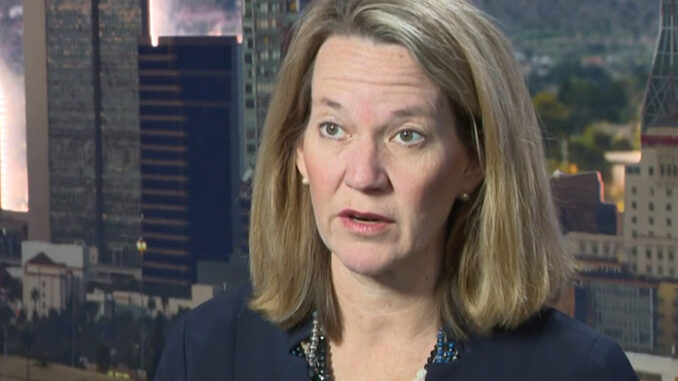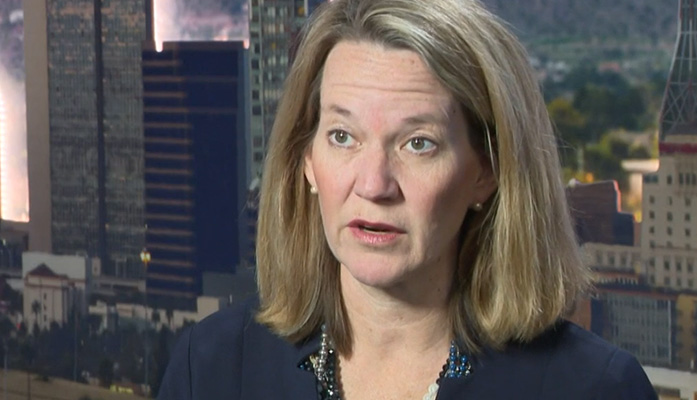
It appears Attorney General Kris Mayes will be at the center of another lawsuit, this time over alleged civil rights violations.
Attorney Mike Davis — former chief counsel for nominations within the Senate Judiciary Committee and member of the Article III Project and the Internet Accountability Project — also accused Mayes of stealing the Arizona attorney general’s seat from Congressman-elect Abe Hamadeh by disenfranchising Maricopa County voters. Davis said he plans to sue Mayes for her recent action against certain supporters of Donald Trump.
“In one week, you will go from the hunter to the hunted,” said Davis. “Conspiracy against rights (18 U.S.C. § 241) is a serious federal civil-rights felony. Lawyer up.”
Dear @KrisMayes:
You disenfranchised Maricopa County voters on Election Day–stealing your election from @AbrahamHamadeh.
In one week, you will go from the hunter to the hunted.
Conspiracy against rights (18 U.S.C. § 241) is a serious federal civil-rights felony.
Lawyer up. https://t.co/yQk8rGYVig
— 🇺🇸 Mike Davis 🇺🇸 (@mrddmia) January 13, 2025
The cited law prohibits conspiracy by two or more individuals to “injure, oppress, threaten, or intimidate” another for exercising their constitutional or lawful rights.
Mayes was declared the victor over Hamadeh by less than 300 votes in 2022.
Davis threatened litigation in response to Mayes sending a letter to Attorney General Merrick Garland over the weekend requesting Special Counsel Jack Smith’s case file on the 2020 presidential election.
In her letter, Mayes said that Smith’s case file would ensure the prosecution of 18 individuals who supported Donald Trump’s attempt in 2020 to challenge the presidential election results.
Those 18 individuals include Arizona’s 11 past electors for Trump: former Arizona Republican Party chair Kelli Ward and her husband, Michael Ward; Turning Point Action COO Tyler Bowyer; Arizona Federation of Republican Women member Nancy Cottle; State Senators Jake Hoffman and Anthony Kern; former congressional candidate Jim Lamon; former Cochise County Republican Committee chair Robert Montgomery; former Gila County Republican Party leader Samuel Moorhead; Ahwatukee Republican Women member Loraine Pellegrino; and former Arizona Republican Party leader Greg Safsten.
“I have held steadfast to prosecuting the grand jury’s indictment because those who tried to subvert democracy in 2020 must be held accountable,” said Mayes.
The Trump electors and backers each face nine felony counts related to fraud, forgery, and conspiracy. A grand jury indicted the defendants last April.
Mayes made it clear following Trump’s reelection that she wouldn’t modify or drop the case, despite ongoing controversies over the nature of the case and those ruling on it.
Last November, reports emerged that Mayes relied on a plan crafted by a dark money-funded leftist nonprofit to prosecute Trump’s 2020 electors and backers: States United Democracy Center (SUDC). SUDC was part of the notorious “shadow campaign” that took credit for influencing the 2020 election by changing election rules and laws, and controlling media coverage and the flow of information. Some of their advisory board members went on to receive appointments in the administration they helped secure.
Also in November, the judge on Mayes’ case against the Trump electors, Bruce Cohen, recused himself after the publication of his emails in which he demanded all other judges and commissioners defend Kamala Harris. Cohen had taken offense to the characterization of Harris as a “DEI hire” following her selection as the Democratic presidential candidate, and compared her critics to the Nazis.
Cohen denied that his recusal marked an admission of bias in the case, and noted that his initial email was followed by an apology.
“As noted in the subject email, the same cry for decency and respect would have been made about disparaging comments from either political sphere,” stated Cohen. “Out of a commitment to justice, even the appearance of bias cannot be allowed to undermine the fundamental fairness that is extended by the court to all who come before it.”

